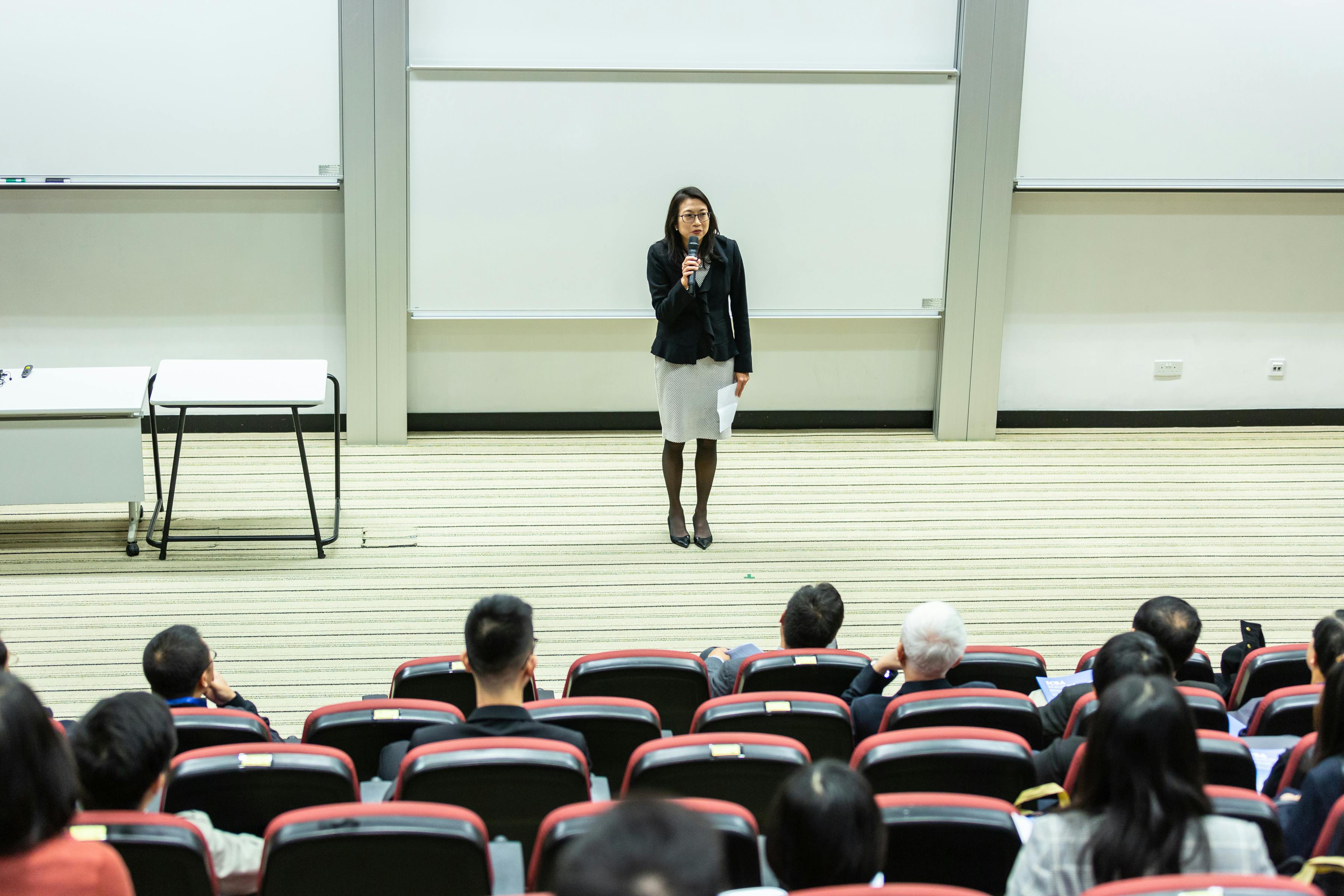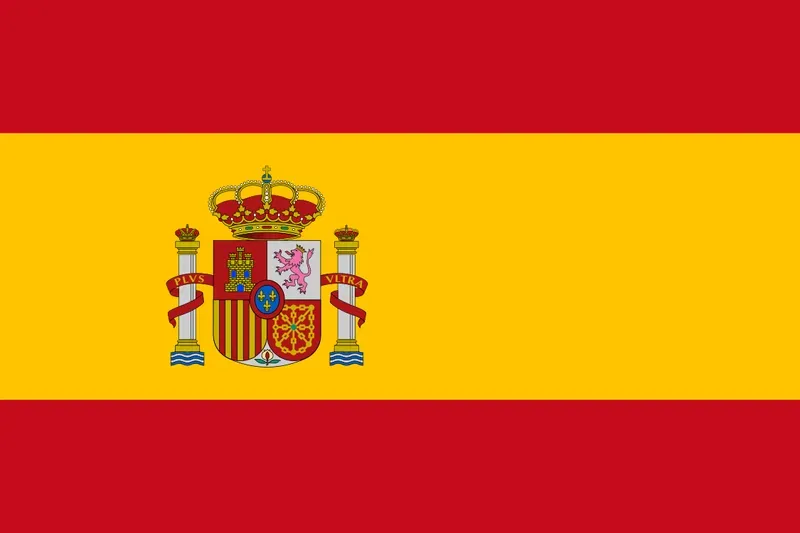
Assisting With Business Immigration Cases in California
Expanding your business into the U.S. or hiring international talent? Our firm helps entrepreneurs, investors, and companies navigate the complex business immigration process with precision and efficiency.
Securing Employment-Based Visas
We assist businesses and professionals in obtaining work visas, including H-1B, L-1, E-2, and O-1 visas, ensuring a smooth transition for employees.
Investor and Entrepreneur Visas
For those looking to launch or invest in a U.S. business, we handle EB-5 investor visas and E-2 treaty investor applications with a focus on compliance and success.
Employment Green Card Sponsorship
We guide employers and employees through PERM labor certification, I-140 petitions, and adjustment of status to secure permanent residency for foreign talent.



H-2B visas provide United States employers the ability to bring Foreign Workers to the United States to be employed in temporary non-agricultural jobs. Non-Agricultural jobs include: Hospitality, Hotels, Motels, Chefs, Resorts, Theme Parks, Ticket Sales, Cruise Ships, Construction Workers, Maintenance, Janitorial, Ski Resorts, Retail Stores, Golf Courses, Landscaping, Security, Restaurants, Bars, Warehouses, etc.
H-2B Visas Temporary Non-Agricultural Workers





Employer Requirements for the H-2B Visa
To qualify, the employer must prove:
- The job is non-agricultural and non-professional in nature.
- The position is temporary—seasonal, peak-load, intermittent, or a one-time occurrence.
- There are not enough U.S. workers who are willing, able, and qualified for the role.
- Hiring H-2B workers will not adversely affect the wages and working conditions of U.S. employees in similar positions.
- The employer has obtained a temporary labor certification from the U.S. Department of Labor.
Foreign Worker Qualifications
- Must be a national of an eligible country designated by the U.S. government.
- Must apply for the H-2B visa and be admissible under U.S. immigration law.
- If inadmissible, a worker may be able to obtain a temporary waiver to enter the United States.
- Entry into the U.S. requires approval from U.S. Customs and Border Protection at a port of entry.
Period of Stay
Generally, H-2B workers will be allowed to stay in the United States for up to 1 year. However, most H-2A workers are allowed to stay in the United States for the period specified in the Labor Certification. H-2B visas may be extended for a maximum total period of 3 years.
Family of H-2B Visa Recipients
Spouses and unmarried children under 21 may accompany an H-2B visa holder on an H-4 visa, which is valid for the same period as the principal visa.
Important: H-4 visa holders are not authorized to work unless they obtain separate employment authorization.
The H-2B Visa Process
The process involves multiple government agencies and strict filing timelines:
- Temporary Labor Certification with the U.S. Department of Labor.
- Petition Filing with U.S. Citizenship and Immigration Services (USCIS).
- Consular Processing or Change of Status for workers.
- Inspection and Admission at a U.S. port of entry.
H-2A Visas for Temporary Agricultural Workers
The H-2A visa allows U.S. employers to hire foreign nationals for temporary agricultural jobs when qualified U.S. workers are not available. These roles include: Planting and harvesting crops, raising livestock, cultivating orchards or vineyards, and greenhouse or horticultural production
Employer Requirements for the H-2A Visa
To qualify, the employer must prove:
- The position is agricultural in nature (planting, cultivating, harvesting, or related production work).
- The job is temporary, seasonal, or peak-load in nature.
- There are not enough U.S. workers who are able, willing, and qualified to do the work.
- Hiring H-2A workers will not negatively affect the wages and working conditions of U.S. workers in similar jobs.
- The employer has a temporary labor certification from the U.S. Department of Labor.
Foreign Worker Qualifications
- Must be a national of an eligible country designated by the U.S. government.
- Must apply for an H-2A visa and be admissible under U.S. immigration law.
- If inadmissible, the worker may seek a temporary waiver to enter the country.
- Admission to the U.S. is granted at a U.S. Customs and Border Protection port of entry.
Period of Stay
Generally, H-2A workers will be allowed to stay in the United States for up to 1 year. However, most H-2A workers are allowed to stay in the United States for the period specified in the Labor Certification. H-2A visas may be extended for a maximum total period of 3 years.
Family Members
Spouses and unmarried children under 21 may accompany an H-2A visa holder on an H-4 visa, which is valid for the same period.
Important: H-4 visa holders cannot work in the U.S. unless they receive separate employment authorization.
The H-2A Visa Process
The process involves multiple steps and agencies:
- Temporary Labor Certification with the U.S. Department of Labor.
- Petition Filing with U.S. Citizenship and Immigration Services (USCIS).
- Visa Application at a U.S. consulate abroad.
- Inspection and Admission by U.S. Customs and Border Protection.
Because the process is time-sensitive and highly regulated, early preparation is key. Delays can jeopardize your seasonal hiring plans.





The H-1B visa is an employment-based visa that allows certain qualified foreign nationals to work in specialty occupations in the U.S. for a finite period of time. A "specialty occupation" is one that requires theoretical and practical application of a body of highly specialized knowledge in a field of human endeavor such as architecture, engineering, biotechnology, medicine, theology, or accounting, among others. A U.S. employer must sponsor such workers and their employment is limited to the sponsoring employer. There are laws limiting the number of workers in this category, but significant exceptions are provided to allow certain types of skilled workers greater access to U.S. opportunities.
H-1B Visas for Temporary Employment





Specialty Occupation Requirements
To be eligible for an H-1B visa:
- The position must require at least a Bachelor’s Degree (or equivalent) in a related field.
- he foreign national must hold that degree—or demonstrate an equivalent combination of education and experience that meets U.S. standards.
Challenge: Proving degree equivalency using experience can be difficult and requires strong evidence.
Third-Party Placements
Many U.S. companies place H-1B workers at client or third-party worksites. USCIS requires proof that the sponsoring employer retains the right to control the worker. This can be shown through:
- Service agreements
- Statements of work (SOWs)
- Purchase orders
- Detailed client letters
Challenge: Obtaining detailed documentation can be difficult—especially when vendors sit between the employer and the end client.
LCA Posting Requirements
Beyond the above, the Department of Labor’s regulations also require workers in the same occupation at the same work location where the H-1B work is to be performed to receive notice of the filing of the LCA. Where workers are placed off-site, properly posting this required notice at the customer location often presents a challenge as well.
Why H-1B Petitions Get Denied
Common pitfalls include:
- Inadequate documentation proving specialty occupation status
- Weak evidence of employer control in third-party placements
- Improper LCA postings or lack of proof they were completed
- Missing deadlines due to the H-1B lottery and annual cap
How The Jurado Firm Helps You Win Your H-1B Case
- Eligibility Assessment: We determine if the role and worker qualify before filing.
- Evidence Preparation: We build strong documentation to prove degree requirements, employer control, and compliance.
- Third-Party Strategy: We work directly with vendors and clients to secure necessary agreements.
- Regulatory Compliance: We ensure all LCA postings and Department of Labor requirements are met.
EB-3 Visas
EB-3 Visas are the third preference level of employment-based immigrant visas. The required qualifications for EB-3 visas are less stringent than those for EB-1 and EB-2 visas. EB-3 applicants do not need to prove that they have earned internationally acclaimed awards, that they are in an executive position in an American company, or that they possess an advanced education.
The EB-3 category is divided into three subgroups
- Professionals with a Bachelor’s Degree
- Skilled Workers with at least 2 years of experience
- Unskilled Workers (other workers)
EB-3 for Professionals with a Bachelor’s Degree
Requirements:
- Must hold a U.S. bachelor’s degree or equivalent foreign degree.
- The position must normally require a bachelor’s degree in the occupation (e.g., engineering, computer science).
- Employer must obtain a Labor Certification from the U.S. Department of Labor (DOL) proving there are no qualified U.S. workers available for the position.
EB-3 for Skilled Workers with At Least 2 Years of Experience
Requirements:
- Position must be permanent, not seasonal or temporary.
- Requires at least two years of job experience, vocational training, or apprenticeship.
- A degree can count toward the two years of experience requirement.
- Labor Certification from the DOL is required.
Important: If the Labor Certification requires a bachelor’s degree, USCIS may adjudicate the petition under the EB-3 professional category instead.
EB-3 for Unskilled Workers
Requirements:
- Less than two years of training, education, or experience.
- Must be able to perform unskilled labor for which there are no qualified U.S. workers.
- Labor Certification from the DOL is required.
Note: This category has a significant backlog—only 10,000 visas per year are available—so wait times can be many years.
The EB-3 Visa Process
The EB-3 green card process typically involves:
- Labor Certification (PERM) – Employer proves no qualified U.S. workers are available.
- Immigrant Petition – Filed with USCIS after certification approval.
- Consular Processing or Adjustment of Status – Final step to receive permanent residency.
Because the process is lengthy, complex, and document-intensive, working with an experienced EB-3 attorney is crucial to avoid delays or denials.





The EB-2 visa is an employment-based immigrant visa for professionals with advanced degrees or individuals with exceptional ability in their field. Approved applicants gain lawful permanent resident status in the United States.EB-2 visas apply to members of various professions—such as doctors, engineers, educators, business executives, scientists, and athletes—who can either demonstrate advanced education or prove exceptional ability far above the industry standard.
EB-2 Visas for Advanced Degree Professionals, Exceptional Ability, and National Interest Waivers





EB-2(A): Advanced Degree Professional
Who Qualifies:
- Hold a master’s degree or higher; OR
- Hold a bachelor’s degree plus at least 5 years of progressive experience in the field.
- Have a confirmed U.S. job offer that requires an advanced degree.
- Employer must obtain a Labor Certification from the U.S. Department of Labor (DOL) proving there are no qualified U.S. workers available.
Typical Fields: Medicine, engineering, business management, education, scientific research, and other professional occupations.
EB-2(B): Individuals with Exceptional Ability
Who Qualifies:
- Must demonstrate a level of expertise significantly above that normally encountered in the sciences, arts, medicine, business, or athletics.
- Must have a U.S. job offer aligned with the applicant’s exceptional ability.
- Employer must obtain a Labor Certification.
- Must meet at least 3 of the 7 USCIS criteria, including:
- Academic record showing a degree, diploma, or certificate related to the area of ability.
- Proof of at least 10 years of full-time experience in the occupation.
- Professional license or certification (if applicable).
- Evidence of a high salary or remuneration.
- Membership in professional associations.
- Recognition for achievements by peers, government, or professional organizations.
- Comparable evidence of eligibility.
EB-2(C): National Interest Waiver
Who Qualifies:
- Applicants request that the job offer and Labor Certification requirements be waived because their work benefits the United States.
- Must prove exceptional ability or advanced education and that the work is in the national interest.
- No employer sponsorship required—ideal for entrepreneurs, researchers, and experts in critical fields.
- Must meet at least 3 of the following criteria:
- Proof of academic qualification.
- At least 10 years of full-time experience.
- Professional license (if required).
- Evidence of high salary or compensation.
- Membership in professional associations.
- Recognition for contributions (awards, prizes, publications).
- Other comparable evidence.
Benefits: Greater independence and flexibility in pursuing your work in the United States.
EB-2 Visa Process
The process varies by category but often includes:
- Labor Certification (if required) – Employer proves no qualified U.S. workers are available.
- Immigrant Petition Filing (Form I-140) – Filed with USCIS.
- Consular Processing or Adjustment of Status – Final step to permanent residency.
Because EB-2 cases involve complex documentation and strict eligibility requirements, working with experienced attorneys is critical to success.
Why Choose The Jurado Firm for Your EB-2 Visa?
- Expert guidance in all EB-2 categories, including NIWs.
- Strategic case preparation to meet USCIS evidentiary standards.
- Full-service representation from eligibility assessment to final green card approval.
EB-1 Visas
EB-1 visas are reserved for immigrants who are among the most capable and accomplished in their professional fields within the arts, sciences, education, business, and sports. EB-1 Visas are immigrant visas, meaning that recipients will be allowed to stay in the United States permanently. The most notable advantage for those who qualify for an EB-1 petition is the lack of requirement of a labor certification requirement. Also, the EB-1 visa category is generaly always current, which means that an individual will not have to wait for visa numbers to become available before applying for adjustment of status and receiving a green card.
EB-1 Visa Categories
The EB-1 category is divided into three subgroups:
- EB-1A – Individuals of Extraordinary Ability
- EB-1B – Outstanding Professors and Researchers
- EB-1C – Multinational Managers and Executives
EB-1A: Individuals of Extraordinary Ability
Who Qualifies:
- Must demonstrate extraordinary ability in your field through sustained national or international acclaim.
- No employer sponsorship or job offer required.
- Must show you will continue working in your field in the U.S. and that your work benefits the nation.
Who Qualifies:
- One-time achievement (e.g., Nobel Prize, Olympic Medal, Oscar) OR
- At least 3 of 10 USCIS criteria, such as:
- Nationally or internationally recognized awards.
- Membership in associations that require outstanding achievement.
- Published material about you in major media.
- Judging the work of others.
- Original contributions of major significance.
- Authorship of scholarly articles.
- Exhibitions or showcases of your work.
- Leading or critical roles in distinguished organizations.
- High salary compared to peers.
- Commercial success in the performing arts.
EB-1B: Outstanding Professors and Researchers
Who Qualifies:
- International recognition for outstanding achievements in a particular academic field.
- At least 3 years of research or teaching experience.
- Permanent job offer from a U.S. employer for a tenured, tenure-track, or permanent research position.
Key Advantage: No labor certification is required.
EB-1C: Multinational Managers and Executives
Who Qualifies:
- Employed outside the U.S. for at least 1 of the last 3 years by a related foreign company.
- Employment must have been in a managerial or executive capacity.
- U.S. employer must have been in business for at least 1 year and have a qualifying relationship with the foreign company (parent, subsidiary, affiliate).
Managerial Role Includes:
- Managing a department, function, or organization.
- Supervising employees, hiring/firing authority.
- Controlling daily operations and budgets.
Executive Role Includes:
- Directing managers.
- Making high-level decisions without significant supervision.
- Setting large-scale company goals and policies.
EB-1 Visa Process
- Petition Filing (Form I-140) – Submitted to USCIS with evidence of eligibility.
- Adjustment of Status or Consular Processing – Final step to receive your green card.
Because EB-1 visas have high evidentiary standards, preparing a strong case with experienced attorneys is crucial.





The L-1A visa allows U.S. employers to transfer executives and managers from affiliated foreign offices to U.S. locations. It also enables foreign companies without a U.S. presence to send an executive or manager to the United States to establish a new office.
L-1A Visas for Executives and Managers





L-1A Visa Employer Requirements
To qualify, the employer must:
- Have a qualifying relationship with a foreign company (parent, branch, subsidiary, or affiliate).
- Be doing business—or be prepared to do business—as an employer in the United States and in at least one other country during the employee’s L-1A stay.
- Maintain a viable business (international trade is not required).
L-1A Visa Employee Requirements
The employee must:
- Have worked for the qualifying organization abroad for at least one continuous year within the three years prior to entering the U.S.
- Be coming to the U.S. to work in an executive or managerial capacity for a branch, affiliate, or subsidiary of the same employer.
Executive vs. Managerial Capacity
Executive Capacity:
- Directs the management of the organization or a major component.
- Establishes goals and policies.
- Has decision-making authority without substantial oversight.
Managerial Capacity:
- Manages a department, function, or organization.
- Supervises other employees and has authority to hire/fire.
- Controls budgets and daily operations.
L-1A Visa for New Offices
For foreign employers sending an executive or manager to open a new U.S. office, the employer must show:
- Secured physical premises for the new office.
- The employee worked in an executive or managerial role for one continuous year within the three years before filing.
- The U.S. office will support an executive or managerial position within one year of petition approval.
Benefits of the L-1A Visa
- Dual intent: You can apply for a green card while on L-1A status (EB-1C category).
- Allows dependent spouses and children to accompany the visa holder under L-2 visas.
- L-2 spouses may apply for work authorization.
- Valid for up to 1 year initially for new offices or 3 years for existing offices, with extensions up to 7 years.
Transfer Specialized Talent to the U.S. with the L-1B Visa
The L-1B visa allows U.S. employers to transfer professional employees with specialized knowledge from a foreign branch, subsidiary, affiliate, or parent company to a U.S. office.It also enables foreign companies without a U.S. presence to send specialized knowledge employees to the United States to help establish a new office.
L-1B Visa Employer Requirements
To qualify, the employer must:
- Have a qualifying relationship with a foreign company (parent, branch, subsidiary, or affiliate).
- Be doing business—or be prepared to do business—as an employer in the United States and in at least one other country for the duration of the employee’s stay.
- Maintain a viable business, although international trade is not required.
L-1B Visa Employee Requirements
The employee must:
- Have worked for the qualifying organization abroad for at least one continuous year within the three years prior to admission to the U.S.
- Be coming to the U.S. to provide services in a specialized knowledge capacity to a branch, affiliate, subsidiary, or parent company.
What Qualifies as Specialized Knowledge?
For foreign employers sending an employee with specialized knowledge to open a new U.S. office, the employer must show:
- Secured physical premises for the new office.
- Financial ability to compensate the employee and commence U.S. operations.
Benefits of the L-1B Visa
- Dual intent: You can pursue a green card while on an L-1B visa.
- Allows dependent spouses and children to accompany the visa holder under L-2 visas.
- L-2 spouses may apply for work authorization.
- Valid for up to 1 year initially for new offices or 3 years for existing offices, with possible extensions (maximum 5 years total for L-1B holders).




The TN visa is an employment-based, nonimmigrant visa that allows citizens of Mexico and Canada to work legally in the United States in specific professional occupations listed under the USMCA (formerly NAFTA) agreement. Includes professions such as accountant, engineer, nurse, and architect to name a few.
TN - Trade Worker Under NAFTA



TN Visa Requirements
To qualify for a TN visa, you must:
- Be a citizen of Canada or Mexico (permanent residents do not qualify).
- Have a valid job offer from a U.S. employer in one of the approved TN professions.
- Possess the required academic and/or professional credentials for that profession.
TN Visa Application Process
The process differs depending on your country of citizenship:
For Canadian Citizens:
- Apply directly at a U.S. port of entry (land border or airport pre-flight inspection).
- Present documentation proving citizenship, job offer, and qualifications.
- If approved, entry and TN visa status can be granted immediately.
For Mexican Citizens:
- Apply for a TN visa at a U.S. consulate or embassy in Mexico before entering the U.S.
- After visa issuance, present it at a U.S. port of entry for admission.
TN Visa Limitations
- TN status is granted for up to 3 years at a time and can be renewed indefinitely in 3-year increments.
- Employment is restricted to the sponsoring employer and the position listed in your application.
- Dependents (spouse and unmarried children under 21) may accompany you under TD status, but they cannot work in the U.S.
O-1 Visas for Individuals with Extraordinary Ability
The O-1 visa is a nonimmigrant visa for individuals who have demonstrated extraordinary ability in their field—whether in sciences, arts, education, business, athletics, motion pictures, or television—and who wish to work in the United States in their area of expertise. Applicants must provide extensive documentation proving national or international acclaim and recognition for their achievements.
O-1 Visa Categories
There are two primary categories of O-1 visas:
O-1A: Extraordinary Ability in Sciences, Education, Business, or Athletics
- For individuals who have demonstrated a sustained record of extraordinary ability in their field.
- Must be coming to the U.S. temporarily to continue work in that area of expertise.
O-1B: Extraordinary Achievement in the Arts, Motion Pictures, or Television
- For individuals with a demonstrated record of extraordinary achievement in the arts or entertainment industry.
- Must be recognized as outstanding, notable, or leading in the field.
O-1 Visa Eligibility Requirements
To qualify for an O-1 visa, applicants must meet at least 3 of the USCIS evidentiary criteria, which may include:
- Receipt of nationally or internationally recognized awards or prizes.
- Membership in associations requiring outstanding achievements.
- Published material about the applicant in major media or trade publications.
- Original contributions of major significance in the field.
- Participation as a judge of others’ work.
- Employment in a critical or essential role for organizations with a distinguished reputation.
- Commercial success in the performing arts (box office receipts, sales figures, etc.).
Benefits of the O-1 Visa
- Allows initial stay of up to 3 years with 1-year extensions.
- No annual cap or lottery system.
- Dependents (spouse and children) can accompany the visa holder under O-3 status.
- Can be a pathway to a green card through EB-1 or other employment-based categories.



The E-2 Treaty Investor Visa allows foreign entrepreneurs and investors to enter and work in the United States to direct and develop a business in which they have made a substantial investment. This visa is ideal for individuals who want to start a business, purchase an existing business, or invest in a U.S. franchise while living and working in the United States.
E-2 Visas for Treaty Investors
_11zon.jpg)


E-2 Visa Eligibility Requirements
To qualify for an E-2 visa, you must:
- Be a citizen of a country that has a valid treaty of commerce with the United States.
- Invest a substantial amount of capital into a real and operating U.S. business.
- Enter the U.S. solely to develop and direct the enterprise (shown by owning at least 50% of the business or having operational control).
- Prove that the investment funds are at risk and committed to the business.
- Demonstrate that the business will generate more than minimal income and create U.S. jobs.
E-2 Visa Validity and Extensions
- Initial validity: Typically 2 years or more, depending on your nationality.
- Extensions: Can be renewed indefinitely in 2-year increments, as long as the business continues to meet E-2 requirements.
- Dependents (spouse and children under 21) may accompany the visa holder; E-2 spouses can apply for work authorization.
Benefits of the E-2 Visa
- No set minimum investment amount
- Renewable indefinitely while the business remains operational
- Ability to travel freely in and out of the U.S.
- Spouses can work and children can attend school in the U.S.
- Potential pathway to a green card through other visa categories
EB-5 Visas for Immigrant Investors
The EB-5 visa provides a path to U.S. permanent residency for foreign investors who make a qualifying investment in a new commercial enterprise that creates American jobs. This program is ideal for high-net-worth individuals who want to live, work, and invest in the United States while contributing to the U.S. economy.
EB-5 Visa Investment Requirements
There are two primary categories of O-1 visas:
To qualify for the EB-5 visa, an investor must:
- Invest at least $1,000,000 in a new commercial enterprise. OR
- Invest $500,000 in a Targeted Employment Area (TEA)—a rural area or location with high unemployment.
Job Creation Requirement
- The investment must lead to the creation of at least 10 full-time jobs for qualified U.S. workers within two years of the investor’s admission to the U.S.
- Jobs can be direct (hired by the enterprise) or indirect (created through regional center projects).
Source of Funds Requirement
- The investor must prove the capital comes from a lawful source (e.g., business profits, asset sales, inheritance).
- Funds must be placed “at risk”, meaning there is a possibility of gain or loss, to qualify under EB-5 regulations.
EB-5 Visa Benefits
- Permanent residency for the investor, spouse, and unmarried children under 21.
- No sponsorship from a U.S. employer required.
- Flexibility to live and work anywhere in the United States.
- Pathway to U.S. citizenship after 5 years of permanent residency.
EB-5 Visa Process Overview
- Select Investment Project – Direct investment or Regional Center project.
- File Form I-526 – Immigrant Petition by Alien Investor.
- Conditional Green Card – Issued for 2 years upon approval.
- File Form I-829 – To remove conditions after proving job creation requirements were met.





Experience the Difference of Working With An Immigration firm?
Watch this video to learn:

What to expect in your case

How our process works

Common immigration challenges

Steps to achieve legal status
Our Practice Areas
The Jurado Firm proudly serves the Los Angeles area and beyond with expert guidance in a myriad practice areas.
Real Clients, Real Results
See how we've helped individuals, families, and businesses navigate the immigration process with confidence and success.

Love Knows No Borders: A Family Petition Success Story
Jesus
"Working with the Jurado Firm, particularly Whitney Jurado, was an absolute game-changer for us. As an immigration attorney, Whitney exceeded all our expectations, not once, but twice—first, when my partner applied for his residency card after we got married, and again when it came time for renewal. Both experiences were nothing short of phenomenal.
What sets Whitney and Carlos Jurado apart is not just their unparalleled expertise in immigration law, but their genuine empathy and support for their clients. As an LGBT couple, finding professionals who not only understand but also respect and champion your rights can be challenging. Whitney and Carlos are those rare gems who make you feel seen, heard, and valued. Their dedication to fostering better opportunities for people like us in the USA is truly commendable.
In a world where the legal process can often feel daunting and impersonal, Whitney and Carlos Jurado stand out for their compassion, professionalism, and unwavering commitment to their clients' best interests. Anyone looking for immigration attorneys would be hard-pressed to find a team more dedicated, knowledgeable, and supportive than the Jurado Firm. They are, without a doubt, the best immigration attorneys anyone could ever hope to work with."
"Lorem ipsum dolor sit amet, consectetur adipiscing elit. Suspendisse varius enim in eros elementum tristique. Duis cursus, mi quis viverra ornare, eros dolor interdum nulla, ut commodo diam libero vitae erat."





"I extend my deepest gratitude to my attorney Whitney for her excellent legal representation in my asylum case. Their professionalism, experience and dedication were fundamental to obtaining a successful result. Also to my legal assistant Xiomara, I deeply appreciate her excellent work on my case. Her ability to explain every detail of the process to me clearly and concisely was invaluable. And of course, thank you to the entire Jurado Firm team. They were always available to answer my questions and I was kept informed at all times."
Derling





"Hello to all those people who want to begin an immigration process such as an adjustment of status, please allow me to recommend the Jurado Firm. I am in process and I am very happy with your service and assistance at all times. Thanks to the lawyer and his assistant, Miss Stephanie, who is an essential person who has helped us from the beginning and they already gave me my work permit. Thank you very much, Miss Stephanie, and also to the entire team who make it possible to achieve this dream."
Garcia Family





"I was able to get a free consultation with Attorney Carlos at The Jurado Firm and eventually I decided to go with them. My legal assistant was Stephanie at the Bakersfield address and overall my experience was made quick and easy. I started with them in spring of 2023 which were a quiet few months because I had to get all my documents in order but in December 2023. I submitted my documents and after the holidays in February 2024 they submitted my Adjustment of status and I received my green card in just under 45 days in March of 2024."
The Mendoza's
Business Immigration FAQs
Navigating immigration law can be complex—here are the most common questions we receive to help guide you through the process.
What types of visas are available for business owners and investors?
Business owners can apply for E-2, EB-5, and L-1 visas, depending on investment size and business structure.
How long does it take to get an employment-based visa?
Processing times vary, but H-1B visas take 4–6 months, while EB-5 visas can take over a year.
Can my business sponsor an employee for a green card?
Yes, through the PERM labor certification and employment-based green card process.
Do I need to have an established business to apply for an investor visa?
Not necessarily—E-2 visas allow startup investments, while EB-5 requires a significant capital contribution.
Can I bring my family with a business visa?
Yes, many business visas allow spouses and children under 21 to accompany the primary visa holder.
Take the First Step Toward Your Future
Your immigration journey starts here—let our dedicated team guide you through every step with expertise, compassion, and unwavering support.

.png)







.avif)
.avif)
.avif)






.png)
.png)


